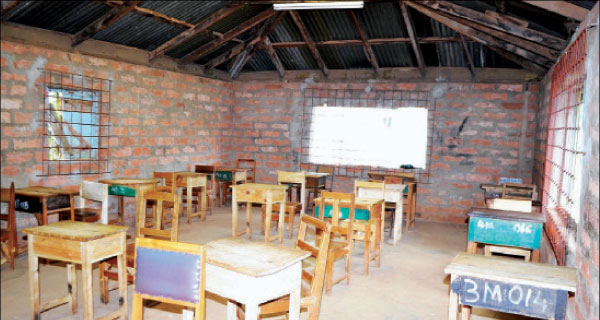 |
|
From Left: James Birgen, Timotheo Songok and Kipkemboi Kijo. They all helped Britain fight its wars before Kenya gained independence. [PHOTO: KEVIN TUNOI/STANDARD] |
By SILAH KOSKEI
As the country prepares to celebrate 50 years of independence, a section of Kenyans who who fought for the British in the 1940s have have decried neglect.
The King’s African Rifles (KAR) war veterans complain that they have never receieved any form of pension despite having fought for the British locally and abroad.
Most of them have died due to old age and neglect. Those still alive have nothing to smile about, although they put their lives at stake and fought gallantly for the British.
Timotheo arap Songok, 96, from Kiplombe in Uasin Gishu County was among those conscripted by the British to fight in the Second World War (1939 to 1945).
“At that time, Africans were so strong that the British recruited us to help them fight their enemies,” says Mr Songok.
Songok who is frail due to old age and suffers unrelenting pain in the legs and poor eyesight, recalls the day British officers visited his village seeking to recruit young, strong men to the army.
“They came to our village in Nandi and ordered for young men. Nobody was supposed to turn down their call because they held high positions. Together with my age mates, I obliged,” he said.
He reveals that the British preffered the Kalenjin, Luo, Kamba and Turkana to join the KAR because they perceived them to have innate strength to fight as soldiers.
Songok says those conscripted were offered specialised training by the British at what known as the Jinja Armed Forces Training College in Uganda before being enlisted with various brigades.
Empty-handed
However, despite their gallantry and the suffering they went through, Songok laments that KAR soldiers have never been recognised by either the Kenyan or the British government.
The father of 12 says that he retired from the force in 1951 and returned home empty-handed.
“My house leaks heavily during the rainy season and it will appropriate for the government to assist me construct a modern one,” he says.
James Birgen arap Rotich, 90, joined KAR in 1943 and returned home in 1948.
Stay informed. Subscribe to our newsletter
“Every time my grandchildren ask me about my life and times as a fighter, the only things that I show them are the medals of honour strapped on the khaki coat I was given by the British officers and nothing more,” he explains.
The frail father of four uses a walking stick for mobility due to leg pains following aggressive activities during his hay days as an ‘askari’.
“Every time my grandchildren ask me about my life and times as a fighter in the war, the only pride that I have to show them are the medals of honour strapped on the khaki coat I was given by the British officers and nothing more,” he explained.
 The Standard Group Plc is a
multi-media organization with investments in media platforms spanning newspaper
print operations, television, radio broadcasting, digital and online services. The
Standard Group is recognized as a leading multi-media house in Kenya with a key
influence in matters of national and international interest.
The Standard Group Plc is a
multi-media organization with investments in media platforms spanning newspaper
print operations, television, radio broadcasting, digital and online services. The
Standard Group is recognized as a leading multi-media house in Kenya with a key
influence in matters of national and international interest.
 The Standard Group Plc is a
multi-media organization with investments in media platforms spanning newspaper
print operations, television, radio broadcasting, digital and online services. The
Standard Group is recognized as a leading multi-media house in Kenya with a key
influence in matters of national and international interest.
The Standard Group Plc is a
multi-media organization with investments in media platforms spanning newspaper
print operations, television, radio broadcasting, digital and online services. The
Standard Group is recognized as a leading multi-media house in Kenya with a key
influence in matters of national and international interest.






